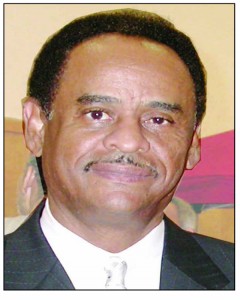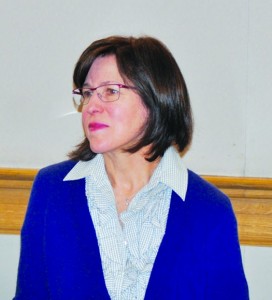State Reveals How City Lost $600,000 to Help Workers
Feb 7, 2013
By Ken A. Epstein
Part 2
City of Oakland officials are explaining how they lost $600,000 in federal job training money to provide training for laid off-workers, after the loss was made public by Vice Mayor Larry Reid at last week’s meeting of the City’s Council Community and Economic Development Committee.
The city had received the federal National Emergency Grant funds, administered by the state Employment Development Department (EDD), in 2010 during the last months of Mayor Ron Dellums´ administration. The grant was originally supposed to be spent by June 30, 2012.
The purpose of the funds was to provide on-the-job training to people who were suffering “prolonged unemployment” as a result of the last recession, according to Dan Stephens, of the Communications Office, EDD Public Affairs Branch.
The City of Oakland was one of 20 agencies awarded this funding based on unemployment rate, poverty levels, and other labor market data, Stephens told the Post in an email response to questions.

The city’s ability to utilize the grant was initially slowed down because the two agencies that were supposed to spend the money had not received their awards through an open bidding process. Nor did the two agencies, Youth Employment Partnership and Volunteers of America, have experience running on-the-job training programs.
To use the money, the state required the city to remedy two issues: it had to conduct a public process to find agencies, and the agencies chosen had to be able to properly run the job training programs.
“During the initial phase of this project, the state hosted periodic conference calls with all 20 of this grant’s project operators (grantees). Many of them were challenged to get their projects operational due to their limited expertise running this type of training program,” said Stephens.
“(Oakland) also struggled with some provider procurement issues (public recruitment of agencies), which further delayed implementation of their project. As a result, their contract for this project wasn’t even finalized until August 2011,” Stephens said. “The city was periodically reminded of the need to develop a corrective action plan that would get their project implemented quickly.”
“Warnings were issued periodically primarily through the conference calls … with all the grantees. There was particular emphasis put on having the better performing grantees share best practices with the others,” said Stephens.
“The city’s current Workforce Investment Act (WIA) administrator John Bailey and his staff were first notified in late October 2011, that the City needed to deobligate (send back) funding from this project or present a written justification substantiating why they should be allowed to retain this funding as the availability of this funding to the state was scheduled to end on June 30, 2012,” he said.
“In early November 2011, the state communicated a specific request to Mr. Bailey to deobligate $300,000 of the original award of $725,462. This request was subsequently modified in mid-December 2011 to increase the amount to $400,000,” he said
According to Stephens, the state provided assistance to the city through a variety of means including the periodic conference calls, including advice and support in trying to address the issues of seeking new agencies that could provide on-the-job training services.
Initially, $400,000 was sent back on Dec. 27, 2011. An additional $125,462 was sent back on May 7, 2012, Stephens said.
Left in the grant was $200,000, for which the Oakland Private Industry Council (PIC) received a contract from the city three weeks before the originally scheduled sunset date. PIC was able to spend $80,849 by Sept. 30, after
An additional $119,150.72 was returned on Nov. 2, 2012 as part of the city’s “closeout,” Stephens said.
WIB Executive Director John Bailey, who took his city position the beginning of 2011, was previously CEO of Volunteers of America, which was one of the agencies that had been originally selected by city to implement the grant.
“This was a grant from the federal government,” Bailey said. “The funds were pretty restrictive in terms of use.”

“What we discovered, once looked at this,” he said, was the way the city had designed the programs “was out of line with federal requirements on how the money should be spent.”
In addition, the city had not gone through the correct process “in picking the agencies,” he said. “We were much more interested in staying within the federal guidelines than spending the money.”
“Those two things together created quite a challenge in being able to spend the money within the timeline,” he said.
“When we talked to them (the state), they said they would not waive the (agency selection) process,” he said. “There was a concern that (it) would be a very lengthy time process,” he said. “A decision was made that we needed to act on this right away.”
“To save some of the money,” he said, a contract was awarded to PIC a few months before the September 2012 cutoff date.
“It’s a real shame when Oakland can’t take advantage of that much money for such a critical need. We need to make sure that never happens again,” said City Council President Pat Kernighan, who is also a WIB member.

Bryan Parker, who is WIB chair and a member of the Oakland Port Commission, said he was aware of the issue, which goes back to before his tenure. The city took over more of local workforce development functions in 2010. “There could have been better planning at the end of the Dellums administration, “when the city took back” some of the administrative functions, he said.
But now those administrative issues have been resolved, he said. “There are other funds that are out there,” that the city can obtain, Parker said. “You can look at where we were, or you can look at where we are and where we are going.”
According to one WIB member, it was the Dellums administration that brought the jobs funding to Oakland. And it was the Quan administration that managed to lose it.
“What we need is competent leadership,” said La Tronda Lumpkins, executive director of Pivotal Points Services, a West Oakland nonprofit that serves foster youth. “We have concerns about dollars going back to the state,” she said, speaking at this week’s WIB meeting. “This is a conversation not just about Pivotal Point but the entire community. We should stop wasting dollars that should be given to the community.
“We are so beyond wasting dollars – we are wasting lives.